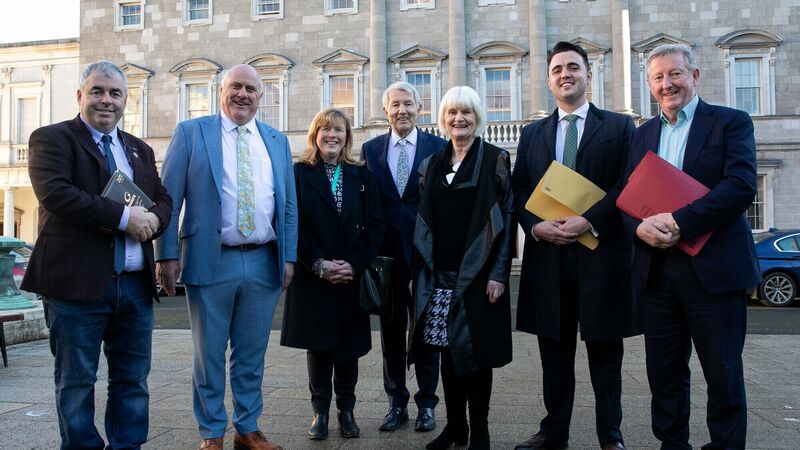Pension age stays, childcare costs cut: Key takeaways from programme for government

Members of the Regional Independents Group: Kevin 'Boxer' Moran, Noel Grealish, Gillian Toole, Michael Lowry, Marian Harkin, Barry Heneghan, Sean Canney. Picture: Gareth Chaney / © RollingNews.ie
Smaller class sizes, gym membership tax credits, a new transport police and the retention of the pension age are among the measures contained in the draft programme for government.
Members of the Fianna Fáil and Fine Gael parliamentary parties are holding separate meetings in Leinster House to sign off on the document before it goes out to the wider membership over the weekend, paving the way for Micheál Martin to become Taoiseach next week.













